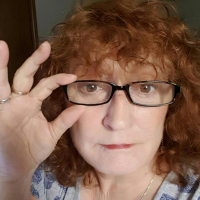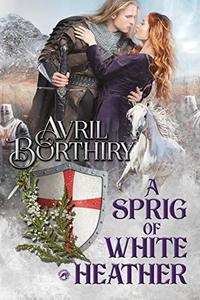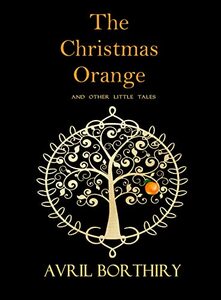What was your childhood like? Has it impacted your writing in any way?
My childhood experiences have impacted my writing in so many ways, I could probably write a book! Oh, wait. LOL! Seriously, my childhood was far from idyllic in some ways, yet in others I was utterly blessed. I was fortunate to grow up in a very beautiful and historic part of England, and also travelled all over the British Isles with my family. Of course, when writing, I draw on lifelong experiences, both good and bad, and delve into my memories for character traits.
What was your favourite subject growing up? Who was your favourite teacher?
My favourite subject was English. I liked most of my teachers, actually! Mrs. Taylor, my English teacher, was the one who encouraged me to ‘keep writing’. My math teacher, Mr. Magnall, was the one who convinced me I wasn’t as stupid as I thought (math made no sense to me till I ended up in his class). I don’t consider myself an academic, but I have to say high school was a positive experience, and I did okay. Good memories!
What are some of the things you have learned from your favourite authors?
That it is possible to create worlds that become real in the mind of the reader. It allows them to escape for a time, which can be so important for many reasons, not least because the real world can sometimes be a wee bit frightening. A book, and more specifically, the characters within, can stay with us long after the last page has been turned. I admire a writer who can ignite my emotions and I endeavor to do the same when I write my stories.
Why did you choose the romance genre? Do prefer writing historical romance or paranormal romance?
I’m not really sure why I chose it, to be honest, since I actually read (and have written) a wide range of genres. I grew up reading fairy tales, fell in love at a young age with Jane Eyre, and enjoy a good ghost story. I’m also fascinated by the old pagan beliefs, and how many of them were absorbed into today’s religions. Do I prefer writing historical or paranormal romance? Yes. LOL! Most of my books are historical romance laced with paranormal/fantasy elements. I also like to explore the emotions of my characters, and in order to do that I have to put them into stressful or intense situations. Love is extremely powerful. So is hate, and jealousy, and lust. Romance, history, and fantasy allow me to explore all of the above!
What motivated you to write your first book? What were the challenges you faced in the process of publishing?
I’ve written stories and poems as long as I can remember. Several years ago, I signed up on a writer’s website and participated in both writing and reviewing. I was fortunate to connect with some incredible people on there who taught me the value of setting my ego aside in order to listen to constructive criticism. Doing so markedly improved the impact of my story-telling. One of those mentors is now my editor and I adore her! My short story on that site ended up as a sixty-thousand-word novel – my first full-length book. My challenges in the process of publishing were due entirely to my lack of knowledge, but I not too proud to admit ignorance and I’m always willing to learn. Had I known then what I know now, I’d likely have done things a little differently. But it’s been a fun ride all the same!
Of all the series that you have written, which was the most challenging to write and why?
The only complete series I’ve written so far is my ‘Legends’ series, and each of those three books is a standalone. The ‘theme’ in each is similar – medieval romance with elements of pagan and the paranormal. I wouldn’t say I found them challenging. I loved writing them! I’ve been told the books are hard to classify, since they tend to cross genres, but I tell myself that makes them original! My latest (and second) series is my Templar series, ‘The Sword and the Spirit’ – still a WIP. These stories are a little more challenging, because I’m trying to keep the history of the Templar knights somewhat authentic while bringing romance into the mix. These men were monks – women were off limits – so getting around that without being too cliché is something of a challenge. But I’m happy with the way the books are turning out!
You have done a beautiful job in creating another time, another place in "The Wishing Well." Why did you choose to write it that way? How do you think changing timelines affect the reading experience?
Thank you so much! ‘The Wishing Well’ is one of my favorite books. It was totally inspired by Gordon Lightfoot’s song ‘If you could read my mind, love’ and specifically the lyric - ‘’bout a ghost from a wishing well, in a castle dark or a fortress strong, with chains upon my feet’. The very first time I heard that lyric back in the seventies, it stirred images in my head. A few years ago, I was in my kitchen listening to the radio, and they played that song. I sat down and wrote the first page of what started out as a short story and became a 70,000 plus-word novel. My emotional investment in the book was huge. I shed so many tears writing it. The changing of timelines is something I think we all consider at some point in our lives – those ‘what if’ or ‘if only’ moments. I am no stranger to loss, so my imagination and secret wishes played into the plot with absolute authenticity. Lora, my heroine, is given a second chance to take back the love that she lost, and Gareth, the hero, is… well, no spoilers! But I have to believe the reader’s experience is enhanced by the idea that such things might be possible. I happen to believe there are powers at work in the universe that we cannot begin to understand.
Can you tell us about the kind of research that goes into writing a historically sound book?
All kinds! Google is totally my bff. I also have shelves full of research books I’ve picked up from second-hand stores and used book sales. I’ve even contacted university professors to check the validity of some details. I LOVE doing research. That said, I have no problem admitting that I take liberties at times, my excuse being that I write fiction! I do try to keep the flavors of the setting and period authentic, though. I’m also fortunate to be familiar with many of the locations in my books.
Who inspired the character of Cristen St. Clair in The Sentinel? In what ways do you find yourself relating to her?
Not so much who, but what, and that is the resilience and strength of the human female, frequently underestimated imho. Cristen is the woman who finds the courage to escape from abuse. She is also driven by one of the strongest instincts on the planet. Again, no spoilers! How do I relate? Hmm. I’m a woman, fully aware of my weaknesses. But I am also aware of my strengths, and have drawn on them many times. I hope I gave Cristen that same awareness. She also pays Turi the greatest compliment any woman can pay a man - she places her trust in him. Turi, for me, is the ultimate hero. Writing him was a true pleasure.
In what ways has writing romance novels changed your own outlook on life and romance? Do you think your stories have a chance of happening in real life?
Writing romance hasn’t really changed my outlook on life. I try to keep things in perspective and not lose sight of what is truly important. I love to laugh, but I’m not immune to melancholy. Writing is, most definitely, therapeutic for me. I’m somewhat introverted – common among authors, I’ve been told – so writing allows me to let loose! Some of my books’ scenarios could certainly happen in real life. Others, probably not! Then again, if you don’t look for magic, you’ll never find it, she says with a wink!
What do your stories mean to you? If you lost the ability to write, how else would you try and get your stories out?
My stories are part of who I am. I have to write them and would continue do so even if I never sold any! Heaven forbid I lose the ability to write. I have a dear friend who is also a brilliant writer (not published, though I’m working to rectify that) and she has recently lost her sight to the point that she cannot write comfortably anymore, so I’ve been looking into the speech-to-text programs. That we now have such options is remarkable. I guess, then, if I couldn’t actually write, I would dictate.
What are the challenges you face when writing from perspectives of people that are different from you? Like children, or people of different genders? Do you have a certain writing routine you adhere to daily?
I try to be careful with my POV’s and also try to avoid author narrative, which can pull the reader out of a story. I don’t ‘head-hop’. I like to stay with one character per scene or chapter. Doing so allows me to stay in his or her head, showing (not telling) the story from their perspective by digging into their thoughts and emotions. I believe this adds depth to a character. I love writing children and have featured them in a few of my books. I find men easier to write than women for reasons I cannot begin to explain, and I also like to put animals into my books. I try to write something every single day, even if it’s just a paragraph. My brain is constantly on the go, night and day. God help me!
What are some author milestones you've achieved so far? What more do you hope to achieve in ten years time?
Milestones: Typing ‘The End’. Typing a new title page. Hitting ‘publish’. Receiving emails from readers wanting to know when my next book will be out. Good reviews. Bad reviews (yes, they are important too). Being an indie. Being traditionally published. I hope to continue to achieve these same things. I hope to continue doing what I love to do.
How did you first learn about AllAuthor? In what ways has this website helped you as a writer? Is there anything you're not a big fan of?
I think I found you through a Facebook post! I like the way you do things, the way you present and represent, and the overall ‘feel’ of your website and your organization. You have given me more exposure as an author, and I appreciate that. Does that last question pertain to your site as well? If so, I have found nothing to criticize. Otherwise, I’m not a big fan of sitting in traffic.






